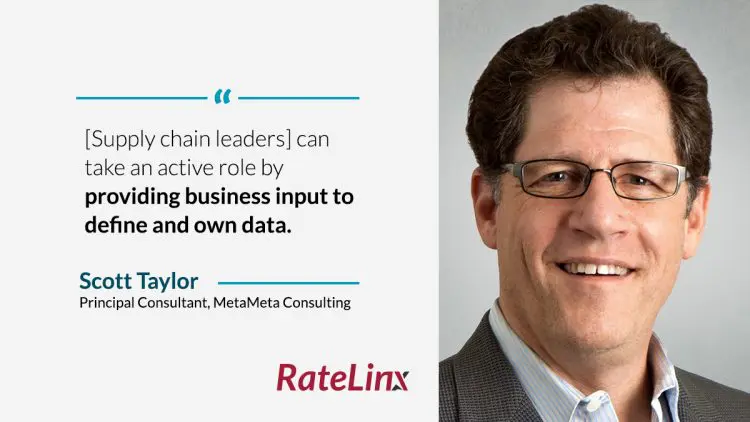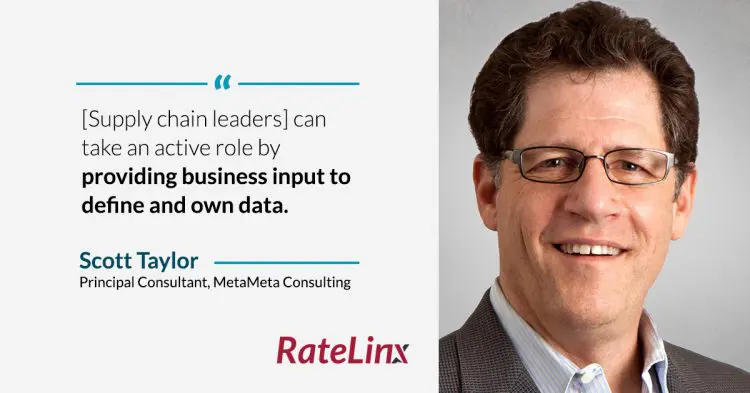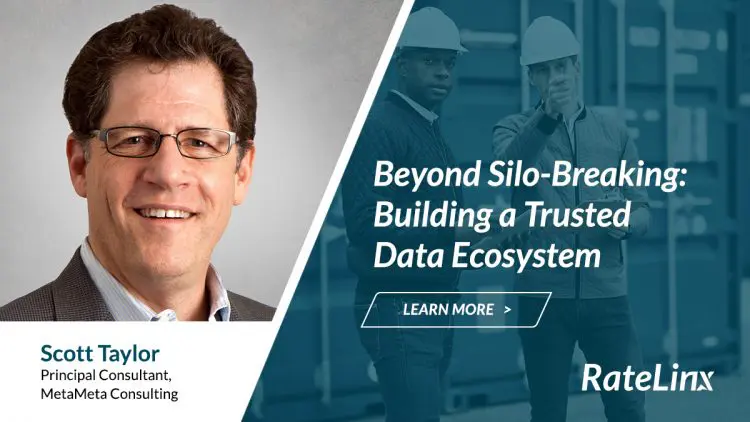As our high school science teachers taught us, ecosystems are complex. In a biological ecosystem, each organism interacts with each other and the environment to support the functioning of the whole. If one element disappears or changes, it affects the entire system as a result.
It’s the same in the modern supply chain data ecosystem. Internal departments interact with each other, including external vendors and partners. These interactions determine the overall business environment. In the past, this ecosystem was based on analog information from paper documents and files. However, today, it’s largely made up of bits and bytes — data — which has allowed businesses to conduct and monitor operations on an unprecedented scale.
However, sharing data in this ecosystem is more complicated than simply reading and forwarding documents. That means the data ecosystem doesn’t always function as it should—resulting in delays, inaccuracies, extra expenses, and frustration.
Featured Expert

Scott Taylor
Scott Taylor is The Data Whisperer – an evangelist for how data can transform supply chains and streamline fulfillment. He hosts a regular video series, contributes to numerous publications and serves as a guest speaker for supply chain conferences and events around the world.
Recommended Reading:
We asked Scott Taylor to explain the importance of quality, standardized data in building and supporting healthy supply chain ecosystems.
Scott has over 20 years of experience assisting large global enterprises with their data challenges. Known as the “Data Whisperer,” he is an evangelist for the value of proper data management to support and enhance business processes and goals.
“In many cases, business dealings based on personal feelings and good faith can sour quickly if the data supporting that relationship is inaccurate.”
The Path to a Master Data Strategy
Data transformation journeys usually follow a three-phase path, says Scott. “Most enterprises start in a legacy state of multiple silos,” he says. Supply chain, procurement, sales, marketing, and finance for example — are all worlds unto themselves.
In the second stage, the organization becomes focused on their relationships, incorporating 360-degree solutions for suppliers and vendors. “They’ve made that leap from legacy state to an integrated enterprise,” Scott says. “But now they have to work outside their organization.”
That sets the stage for the third step: The company becomes part of an ecosystem of partners, vendors, suppliers, and service providers. But that network requires trust, and trust depends on accuracy. “In many cases, business dealings based on personal feelings and good faith can sour quickly if the data supporting that relationship is inaccurate,” Scott warns.
A master data strategy is integral to successfully support operations in the ecosystem. “Using the same standard data and definitions, or links to the same standard data and definitions, across verticals and markets provides the basis for seamless integration,” says Scott. “Leveraging common data and syndicated processes between external parties enables the interoperability in a trust network to scale.”
Like what you’re reading?
Make the Business Case for a Trusted Data Ecosystem
A global trusted network makes it possible to do business faster and more efficiently. Building that network, however, is not without its challenges. “To do it at scale takes technology. Technology requires data,” says Scott.
Yet a lack of consistent data standards means many organizations are unable to track and measure activity within and across both internal and external channels. Even worse, “other companies impose their structured and unstructured data on their business partners.” says Scott. “This can leave each company to bear the continual burden of applying resources to reconcile the differences.”
However, supply chain leaders can make a difference by supporting standardized data programs. But not just within their organizations — across industries and their network. In doing so, they have a strong hand in ensuring such standards align with their needs. “[Supply chain leaders] can take an active role by providing business input to define and own data,” says Scott.
“Modern data leaders are looking for ways to improve operations, bring greater value, and mitigate risk —– but they need to better understand the business and operational challenges that supply chain experts face.”
Ultimately, a master data strategy results in clearer communication, more accurate information, and faster service across the ecosystem. “Well-structured, standardized data for relationships enables a solid foundation for interoperability,” Scott says.
Keep the Ecosystem Clean with Good Data
“Garbage in, garbage out”, is an inescapable truism in computing, and it’s what Scott calls the “Golden Rule of Data.” Making sure good data goes in, so the output can be trusted, is even more important in an increasingly interdependent business ecosystem.
Unfortunately, bad data is like plastic detritus in the oceans — it’s everywhere. Solving this problem requires taking off the IT blinders and recognizing that data management is an enterprise-wide issue. “Modern data leaders are looking for ways to improve operations, bring greater value, and mitigate risk. But they need to better understand the business and operational challenges that supply chain experts face,” says Scott.
A successful approach to building a healthy data ecosystem involves soliciting and coordinating input from every organization that plays a role in it. It may sound daunting, but the effort on the front end will lead to increasing rewards on the back end. “Working together to establish joint ownership and governance of your data supply chain is the only way to succeed,” emphasizes Scott.
Better Data Can Support Your Future
The modern supply chain is a complex data ecosystem. Data is like the oxygen that organisms breathe — if it’s polluted, everything in the system is going to be affected as a result. Supply chain leaders should take the lead in creating and implementing consistent data standards. But not only across the company — with vendors, partners, and other external parties too. Such a master data strategy can support interoperability at scale and drive greater growth, efficiency, and satisfaction.







